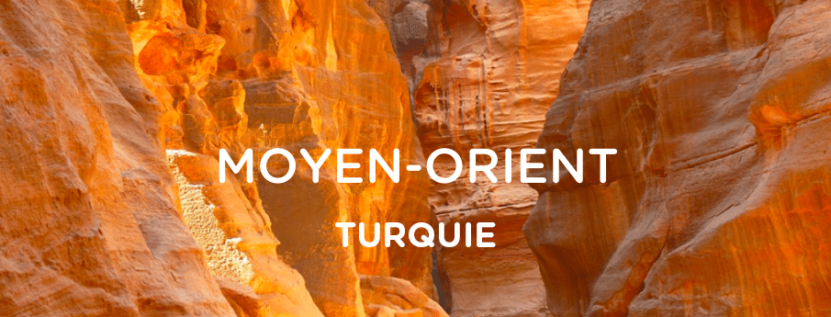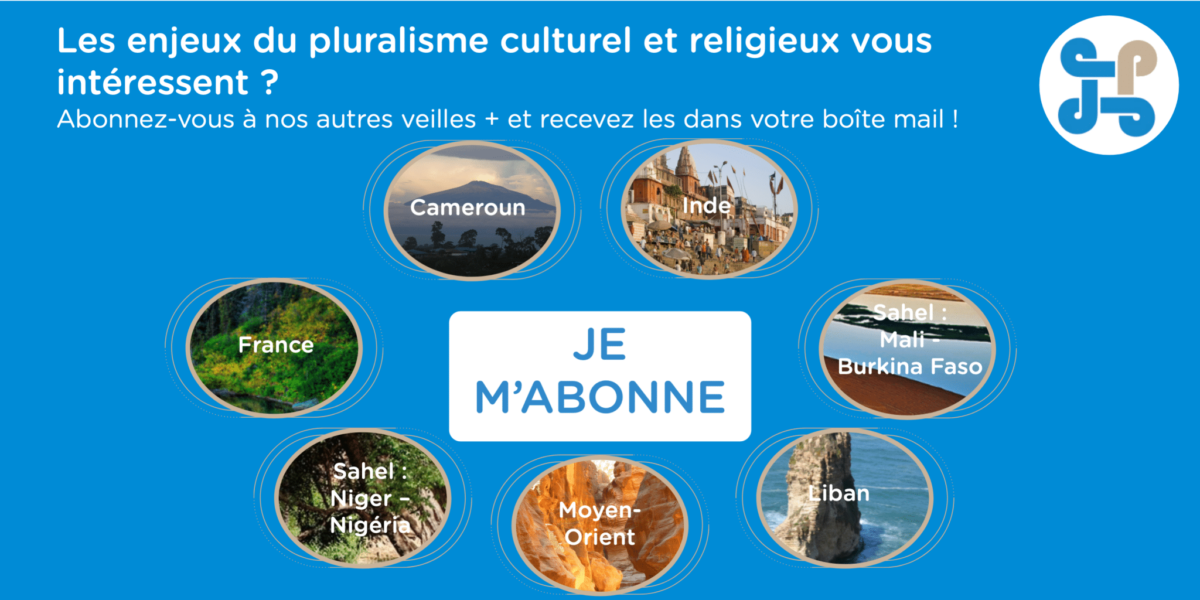|
| |
Le bulletin de cette semaine revient sur l’inauguration du nouveau centre culturel d’Istanbul sur la place Taksim par le président turc Recep Tayyip Erdogan. Une inauguration hautement symbolique sur le plan politique dans un lieu qui fut particulièrement important lors des protestations de Gezi en 2013. Nous mentionnons le portrait d’Osman Kavala réalisé par le journal L’Orient-Le Jour ainsi que l’article de Libération revenant sur une affaire médiatique entre réfugiés syriens et citoyens turcs sur fond de xénophobie et de difficultés économiques. Enfin, nous revenons sur les déclarations de représentants de la communauté alévie de Turquie demandant la reconnaissance d’un statut juridique pour leur lieu de culte, mais aussi une égalité pour tous les citoyens de Turquie quelles que soient leur confession ou leur identité culturelle. This week's bulletin looks back at the inauguration of the new Istanbul Cultural Center in Taksim Square by Turkish President Recep Tayyip Erdogan. A highly symbolic inauguration on a political level in a place that was particularly important during the Gezi protests in 2013. We mention the portrait of Osman Kavala made by the newspaper L'Orient-Le Jour as well as the article of Libération coming back on a media affair between Syrian refugees and Turkish citizens on the background of xenophobia and economic difficulties. Finally, we come back to the declarations of representatives of the Alevi community in Turkey asking for the recognition of a legal status for their place of worship but also for equality for all citizens of Turkey whatever their confession or their cultural identity.
|
|
|
|
| |
L'info phare - Source institutionnelle
|
|
|
|
| |
|
Inauguration du nouveau centre culturel d’Istanbul sur la place Taksim par Recep Tayyip Erdoğan
Le vendredi 29 octobre, Recep Tayyip Erdoğan a inauguré en personne le nouveau centre culturel de la place Taksim à Istanbul. Ce projet a suscité une vive polémique puisque le nouvel édifice a été bâti en lieu et place d’un immeuble symbolique des protestations contre le gouvernement lors des protestations de Gezi en 2013. Ce centre culturel a remplacé l’ancien centre culturel laïc Atatürk, ouvert en 1969, devenu un symbole des évènements de Gezi. L’édifice s’inscrit ainsi dans un « projet idéologique », pour Pelin Pinar Giritlioǧlu, membre de la Chambre des urbanistes, « l’ancien bâtiment n’aurait pas dû être détruit, il aurait pu être renforcé. Ce nouveau bâtiment n’a rien à voir avec l'héritage culturel de cet endroit ». Le centre comprend un opéra, des salles de théâtre, une bibliothèque de deux étages, des salles de cinéma et de concert, ainsi que des lieux d’exposition.
|
|
Inauguration of the new Istanbul Cultural Center in Taksim Square by Recep Tayyip Erdoğan
On Friday, October 29, Recep Tayyip Erdoğan inaugurated in person the new cultural center on Taksim Square in Istanbul. This project has caused much controversy as the new building was built in place of a building symbolic of the protests against the government during the Gezi protests in 2013. The cultural center replaced the former Atatürk Secular Cultural Center, which opened in 1969 and became a symbol of the Gezi events. The building is thus part of an "ideological project", for Pelin Pinar Giritlioǧlu, a member of the Chamber of Urban Planners, "the old building should not have been destroyed, it could have been reinforced. This new building has nothing to do with the cultural heritage of this place." The center includes an opera house, theaters, a two-story library, movie and concert halls, and exhibition spaces.
|
|
|
|
|
|
| |
« Osman Kavala, l’antithèse de Recep Tayyip Erdogan », L’Orient-Le Jour
L’Orient-Le Jour a publié un portrait du philanthrope Osman Kavala incarcéré depuis 2017 et dont l’affaire est au cœur des récentes querelles diplomatiques entre l’État turc et dix ambassades étrangères en Turquie. L’article présente le parcours et les idées de cette figure de la société civile, notamment sa volonté de reconnaître et de développer les différentes identités culturelles et minorités en Turquie. C’est l’objet de la fondation Anadolu Kultur créée par Osman Kavala en 2003 visant à aborder par le prisme culturel des sujets délicats, comme la promotion du patrimoine arménien en Turquie. Plusieurs témoignages de la part d’acteurs de la société civile et d’intellectuels turcs viennent ainsi nourrir le portrait de ce défenseur des droits humains. Pour son soutien à la Fondation Open Society créée par l’Américain d’origine hongroise George Soros, Osman Kavala a été qualifié par Recep Tayyip Erdoğan de « Soros rouge de Turquie », il subit depuis près de quatre ans la machine judiciaire du gouvernement turc.
|
|
"Osman Kavala, the antithesis of Recep Tayyip Erdogan," L'Orient-Le Jour
L'Orient-Le Jour published a portrait of philanthropist Osman Kavala, who has been imprisoned since 2017 and whose case is at the heart of recent diplomatic wrangling between the Turkish state and ten foreign embassies in Turkey. The article presents the background and ideas of this civil society figure, including his desire to recognize and develop different cultural identities and minorities in Turkey. This is the purpose of the Anadolu Kultur Foundation created by Osman Kavala in 2003, which aims to address sensitive issues, such as the promotion of Armenian heritage in Turkey, through a cultural prism. Several testimonies from civil society actors and Turkish intellectuals enrich the portrait of this human rights defender. For his support to the Open Society Foundation created by the American of Hungarian origin George Soros, Osman Kavala has been qualified by Recep Tayyip Erdoğan as the "Red Soros of Turkey".
|
|
|
|
|
|
| |
|
« Entre Turcs et réfugiés syriens, la guerre de la banane est déclarée », Libération
Le journal Libération est revenu dans un article sur le dernier emballement médiatique en Turquie après l’arrestation de plusieurs Syriens en Turquie accusés de « se moquer des Turcs » par des vidéos postées sur les réseaux sociaux. La polémique est née lorsqu’une étudiante syrienne en train de manger une banane a été prise à partie par des passants turcs lui reprochant « d’en acheter par kilos sur les marchés » lors d’un micro-trottoir posté sur YouTube. La scène a été reprise sur les réseaux sociaux, où des Syriens se sont mis en scène en train de manger des bananes, ces publications n’ont pas été du goût des services turcs de l’immigration, qui, après une enquête, ont arrêté sept personnes, qui risquent désormais d’être renvoyées dans leur pays, pour s’être moquées des difficultés économiques des citoyens turcs. Pour Libération, « l’affaire est surtout révélatrice de la montée du ressentiment des Turcs à l’égard des réfugiés syriens qui ont afflué dans leur pays depuis dix ans ».
|
|
"Between Turks and Syrian refugees, the banana war is declared", Liberation
The newspaper Libération has returned in an article on the latest media frenzy in Turkey on the arrest of several Syrians in Turkey accused of "making fun of Turks" by videos posted on social networks. The controversy arose when a Syrian student eating a banana was taken to task by Turkish passers-by for "buying them by the kilo in the markets" in a micro-trottoir posted on YouTube. The scene was taken up on social networks, where Syrians were staged eating bananas, these publications were not to the liking of the Turkish immigration services, which after an investigation, arrested seven people, who may now be sent back to their country, for having made fun of the economic difficulties of Turkish citizens. For Liberation, "the case is especially revealing of the rise in resentment of Turks towards Syrian refugees who have flocked to their country for ten years.
|
|
|
|
|
|
| |
|
Les représentants des fondations alévies demandent au gouvernement turc la reconnaissance juridique de leur statut
Alors que le gouvernement du Parti de la justice et du développement (AKP) a commandé une enquête auprès de la communauté alévie pour identifier ses besoins, plusieurs représentants d’organisations de la communauté alévie en Turquie ont demandé une reconnaissance juridique complète de leur statut et de leurs espaces confessionnels (les Cemevis). Gani Kaplan, à la tête de la fondation culturelle alévie Pir Sultan Abdal, a jugé le soutien du gouvernement comme insuffisant et limité à une « aide matérielle », il a également demandé un statut égalitaire pour les citoyens alévis et l’abandon des privilèges sunnites dans le pays.
|
Representatives of Alevi Foundations ask Turkish government for legal recognition of their status
While the Justice and Development Party (AKP) government has commissioned a survey of the Alevi community to identify its needs, several representatives of Alevi community organizations in Turkey have called for full legal recognition of their status and their confessional spaces (the Cemevis). Gani Kaplan, head of the Alevi Cultural Foundation Pir Sultan Abdal, has called the government's support insufficient and limited to "material aid," and has also called for equal status for Alevi citizens and the abandonment of Sunni privileges in the country.
|
|
|
|
|
|
| |
|
Le patriarche de Constantinople Bartholomée Ier rencontre de hauts responsables américains, dont Joe Biden
Dans le cadre d’une visite de douze jours aux États-Unis, le patriarche œcuménique de Constantinople, Bartholomée Ier, a rencontré plusieurs hauts responsables américains, dont le président Joe Biden. À cette occasion, parmi plusieurs thématiques telles que la pandémie, le changement climatique, le patriarche a pu également discuter de la liberté de religion, des droits fondamentaux, et de la place des minorités et communautés confessionnelles en Turquie.
|
|
Patriarch of Constantinople Bartholomew I meets with U.S. officials including Joe Biden
As part of a twelve-day visit to the United States, the Ecumenical Patriarch of Constantinople, Bartholomew I, met with several U.S. officials including President Joe Biden. On this occasion, among several themes such as the pandemic, climate change, the patriarch was also able to discuss freedom of religion, fundamental rights, and the place of minorities and religious communities in Turkey.
|
|
|
|
|
|
| |
Ce bulletin de veille est réalisé par l’Observatoire Pharos, observatoire du pluralisme des cultures et des religions, dans le cadre de sa mission d’étude de la situation du pluralisme en Turquie. Il rassemble des informations, analyses et déclarations qui ne reflètent pas systématiquement la perception de la situation par l’Observatoire Pharos, mais qui constituent des documents à intégrer dans l’analyse. Les destinataires, partenaires de l’Observatoire Pharos, sont invités à contribuer à la qualité de cette veille par le partage de toutes informations utiles et diffusables.
This newsletter is written by Pharos Observatory, an observatory of cultural and religious pluralism, as part of its assessment study of religious pluralism in Turkey. It gathers information, analyses and speeches which may not reflect Pharos Observatory's feeling about the situation, but which should be taken into account as part of the analysis. All recipients, who are Pharos Observatory partners, are encouraged to contribute to this Watch by sharing any information that is worthwhile and fit to print.
|
|
|
|




